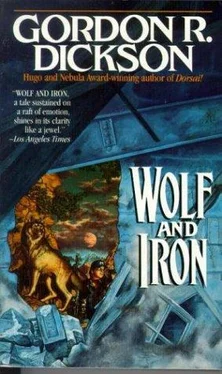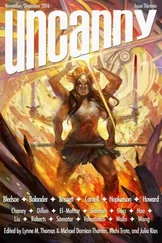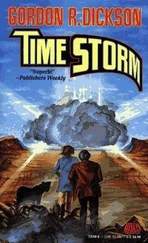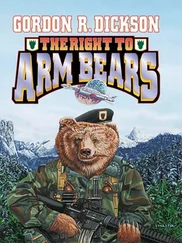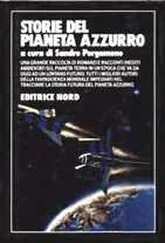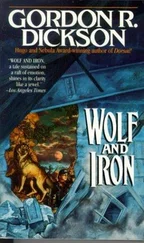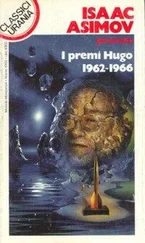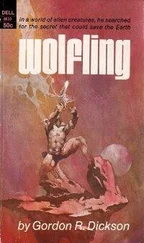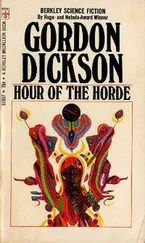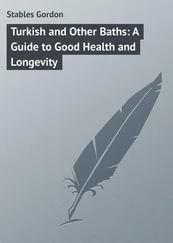But in any case, Wolf was far from being the only danger he might have to face. He felt better having the loaded weapons with him.
But the trip turned out to be more than he had bargained for. He had counted on the leather thong holding the top of the crutch firmly in place. But it did not do so anywhere near as well as he had expected. Perhaps he should have been more patient about waiting for it to dry so that the cord could shrink itself tight in its wrapping—the way he had always understood leather did on drying out.
In any case, gradually his use worked the crosspiece more and more loose, so that it wobbled on the end of the vertical staff. His left leg, in spite of the Dilaudid, hurt and felt weak, and the heavy weight of the powerful binoculars swung back and forth with each step to bump his chest.
The latter was a minor thing, which he would have ordinarily scarcely noticed. But on top of the pain from his arm, leg, and scalp, it was an irritant. He found himself growing irrationally angry at anything and everything, and it was only by positive determination that he at last put the anger out of his mind.
He made the trek to the top of the ridge eventually, moving in small journeys, from point to point. He would pick out ahead a tree to which he could cling, and with which he could lower himself to a seated position on the ground, with his left leg out straight before him and the tree trunk also supporting his back, once he was down.
Then, after a short rest, he would pick out another tree farther on, haul himself upright with his good arm, and go forward once more.
The real problems came when he had to cross the stretch of loose shale on the slope he and the horses had walked over so gingerly on their way in.
He had picked the shortest possible crossing place. It was as far up near the top of the slope as he could go, before it became so steep he was afraid of slipping and falling. The very top of the slope rose at last into the vertical face of a small bluff.
Even where he chose to cross, it was a long stretch and he dared not sit down to rest partway over. With the crutch alone, and the loose rock under foot, he was not sure if he could get to his feet again. Also, even here, the pitch of the slope was steep enough so that if he fell, he might tumble for at least several hundred yards—for the shale spread out in a fanlike manner down the slope, until it brought up against a more level area, below.
He had known he must make this crossing. But he had not fully imagined what it would be like to go over it, crippled as he was. He rested, accordingly, for longer than usual before starting on the near side of the loose stone shards. Then he pulled himself up with the crutch and started out with determination, steadily inching his way across the open space.
He made most of the trip with his eyes on the ground, just ahead, examining the next few feet before him. It was necessary to pick a place between the loose stones to put down the tip of his staff. Also, he wanted firm, level spots on which to plant his good foot when he set it down.
Soon, again, he was enmeshed in a small world of sweating and straining, with his eyes almost hypnotized by the surface a few feet ahead, except when he raised his head to make sure of where he was going.
It was in a moment of such near ground-hypnosis that something dark became noticeable for a moment out of the corner of his right eye, upslope. For a second he ignored it. Only when he had found firm support for his crutch tip and his feet did he stop to turn his head for a better look.
Higher up, only about fifteen feet or so and under a natural outcropping of more solid rock among the shale, there was a good-sized dark hole that looked uncomfortably like the entrance to some animal’s den. It would have been hidden from his sight on the trip in by the night darkness, even if he and the horses had passed close at all.
He had swung the muzzle of his rifle instinctively to cover the entrance the minute he recognized the dark circle for what it was. There were a few seconds in which he waited tensely; then he made himself relax.
The hole was big enough to take a fairly large beast. But anything large enough to den up there should not be likely to be shy about coming out to defend its property, as close as he had now come to it. At the same time, he now knew that all wild animals followed no rule book, but reacted in individual manners. The cougar, which was the most likely animal to be in there, would hardly be present in the middle of the day, since the big cats were daytime hunters.
Nonetheless… he kept the muzzle on the rifle on the opening as he began to move again, working his way on past.
But nothing emerged from the den. He heard no stir of movement inside it. Looking at it from a little distance, he became more and more convinced that the den—if indeed it was that at all… but what else would dig a hole that size into the soft earth under the shale?—was not and probably had not been in use for some time. It might be a bear den. But if so, it was summer now, when bears were out of their dens and, like most large animals, having their time fully taken up by their search for the food they needed to live.
He was worn out and traveling on a last burst of determination when he reached the far side of the shale slope and collapsed.
But he was now at the foot of a fairly short and steady, if steep, slope with no loose rock. As soon as he could catch his breath and get a little of his strength back, he made the last leg of his journey. On the way, a thought occurred to him that he should have had earlier. It was that, of course, the den was unoccupied; otherwise the horses would have reacted when they caught the scent of its owner on the way past, coming in last night.
At the top of the ridge he flopped down on his belly and put the powerful binoculars to his eyes. He focused on the ruins of the ranch house and its outbuildings.
It was clear that the raiders had gone; and they would have left no one behind. For one thing, there would be no reason for them to leave anyone behind, alive. For another, there was not a sign of life—even, when he swept the surrounding area with the binoculars, of any neighbor coming to investigate.
Either this ranch house was far enough removed from others that its neighbors did not know what had happened, or else these had seen the glow of the flames against the night sky, but prudently decided that they probably were not in numbers sufficient to take on a hundred or more of the horse nomads from an unfortified position. Certainly, none of them were in sight now.
Looking through the glasses, Jeebee was surprised to see how much of the ranch house still stood and how much of it and its outbuildings had survived the fire.
He had noticed before, in crossing the farmlands of northern Indiana, how often a house seemed to have been put on fire and yet the flames had died of their own accord before the building was consumed. Apparently, old and solid pieces of timber, large roof beams and such, had a fair resistance to fire.
It was not simply a matter of starting an edge of one smoldering and expecting the whole thing to continue until the whole thing burned up. Often, he had been able to see where the fire had begun on such a beam and given out. So that sections of the house often still stood, often with part or all of the roof immediately above them in place. He had sheltered in a number of such isolated ruins in his first dash out of Stoketon.
Now, as he looked down, he could see that nearly three quarters of the ranch-house roof seemed intact, although all the windows he could see through the binoculars were little more than blackened holes in the sides of a black and blistered building.
Читать дальше
